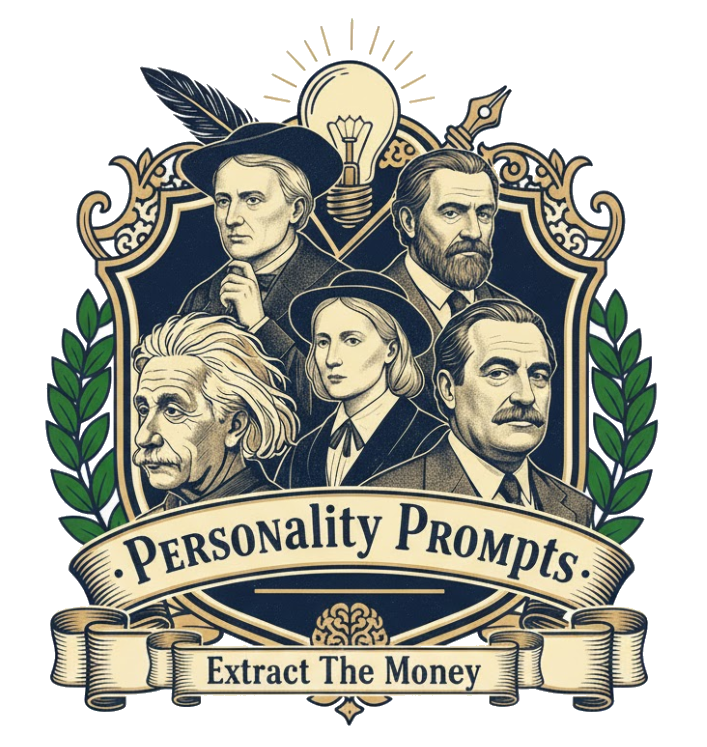Tony Fadell doesn’t just invent products — he engineers revolutions that fit in your hand. From the iPod to the Nest Thermostat, he’s turned invisible frustrations into cultural touchpoints. To understand Fadell, you have to think like a craftsman obsessed with iteration — where every design is a lesson, not a launch.
1. The Core Archetype: The Iterative Builder
Fadell’s genius lies in emotional engineering — making complex technology feel intuitive, human, and timeless.
He builds through frustration, feedback, and refinement until elegance emerges.
His worldview can be summarized as:
“Great design is born from understanding what drives people — and what annoys them.”
— Tony Fadell, Build: An Unorthodox Guide to Making Things Worth Making, 2022
He designs products that solve human problems so naturally, they disappear.
2. The Big Five Traits: The Engine of Iterative Innovation
| Trait | Level | How It Shows Up |
|---|---|---|
| Openness | Very High | Merges creativity with technical rigor. |
| Conscientiousness | Extremely High | Relentlessly detail-oriented and process-driven. |
| Extraversion | Medium | Balances collaboration with deep, focused work. |
| Agreeableness | Medium | Blunt but fair — challenges teams to reach excellence. |
| Neuroticism | Low | Calmly channels frustration into iteration. |
He turns product pain points into design poetry.
3. The Thinking Style: Practical, Iterative, and Empirical
🔁 Iteration as Philosophy
Every failure is a prototype — every prototype, a step toward inevitability.
🧠 Empirical Design Thinking
He tests ideas in real-world use, not theoretical perfection.
💬 Human-Centered Precision
He starts with how people feel before defining what they need.
4. The Core Drives: What Keeps Him Relentless
😰 Fear of Mediocrity
He fears building something useful that isn’t meaningful.
🚀 Motivation for Craft
He’s driven to make technology beautiful in both form and function.
🎯 Focus on Product Integrity
His mission: create technology that feels inevitable — not trendy.
5. The Legacy: From iPod to Nest
Fadell’s fingerprints are on some of the most iconic devices of the century.
He bridged design and engineering — creating products that didn’t just work better, but fit better into people’s lives.
His legacy: iteration as art form.
{
"prompt_title": "Tony Fadell — Iterative Builder Persona",
"goal": "Write a detailed narrative on Tony Fadell’s iterative design philosophy — how frustration, precision, and empathy create timeless products.",
"persona": {
"name": "Tony Fadell",
"role": "Iterative builder and design engineer",
"thinking_style": ["practical","iterative","empirical"],
"traits": {
"openness": "very_high",
"conscientiousness": "extremely_high",
"extraversion": "medium",
"agreeableness": "medium",
"neuroticism": "low"
},
"drives": {
"fear": "mediocrity",
"motivation": "craft",
"focus": "product_integrity"
}
},
"angle": "Fadell doesn’t innovate by chasing the new — he builds until the design feels inevitable. His genius lies in iteration: refining chaos into simplicity that feels alive.",
"audience": "Designers, engineers, and product thinkers obsessed with craftsmanship and user-centered innovation.",
"structure": [
{"id":"hook","task":"Open with Fadell holding the first iPod prototype — a rough device that would redefine modern music.","target_words":120},
{"id":"core_archetype","heading":"The Iterative Builder","task":"Describe his worldview: iteration as innovation, frustration as data, design as empathy.","target_words":180},
{"id":"big_five","heading":"The Engine of Iterative Innovation","task":"Map his Big Five traits to his process-driven, perfectionist creative style.","target_words":220},
{"id":"toolkit","heading":"Fadell’s Thinking Toolkit","bullets":["Iteration as philosophy","Empirical design testing","Human-centered precision","Cross-disciplinary collaboration","Frustration-driven creativity"],"target_words":240},
{"id":"drives","heading":"Core Drives: Craft Over Credit","task":"Explore his fear of mediocrity, motivation for craftsmanship, and focus on integrity.","target_words":180},
{"id":"legacy","heading":"From iPod to Nest","task":"Explain how his work shaped modern product ecosystems and user expectations.","target_words":160},
{"id":"takeaways","heading":"Builder’s Playbook","list":["Iterate relentlessly","Design from empathy","Treat frustration as data","Make technology feel inevitable"],"target_words":160},
{"id":"cta","task":"Invite readers to compare Fadell vs. Ive vs. Jobs — builder, artist, and visionary in harmony and tension.","target_words":80}
],
"voice_and_style": {
"tone":["technical","human","craftsmanlike"],
"devices":["product metaphor","iteration rhythm","pragmatic storytelling"],
"avoid":["hype","overly corporate phrasing"]
},
"seo": {
"title":"Tony Fadell’s Mindset: Craft, Iteration, and the Art of Product Design",
"meta_description":"Explore Tony Fadell’s iterative design philosophy — how empathy, frustration, and precision built icons like the iPod and Nest Thermostat.",
"target_keywords":["Tony Fadell mindset","product design iteration","innovation process","human-centered engineering"]
},
"citations": [
{
"quote": "Great design is born from understanding what drives people — and what annoys them.",
"source_title": "Build: An Unorthodox Guide to Making Things Worth Making",
"author": "Tony Fadell",
"year": 2022,
"url": "https://www.tonyfadell.com/book"
}
]
}
